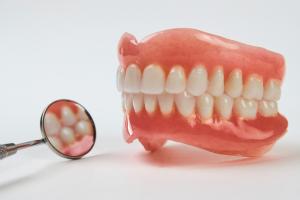
Dental Implants for Seniors: What to Consider
"Dental implants offer a reliable and long-lasting solution for tooth replacement, but there are unique factors that seniors need to be aware of," states Dr. Ronnie Deniger. "Age itself is not a barrier to dental implants, but overall health and specific medical conditions must be carefully evaluated."
Assessing Overall Health
Before proceeding with dental implants, a thorough assessment of overall health is necessary. Seniors often have underlying health conditions such as diabetes, cardiovascular disease, or osteoporosis that can affect the healing process and the success of the implants. It is important to manage these conditions effectively and ensure they are under control.
"Patients with well-managed chronic conditions can still be good candidates for dental implants," Dr. Deniger explains. "However, a comprehensive health evaluation is essential to minimize risks and optimize outcomes."
Bone Density and Quality
Adequate bone density and quality are critical for the successful placement of dental implants. Seniors may experience bone loss due to aging, making it essential to evaluate the jawbone's condition. In cases where bone loss is significant, bone grafting procedures may be necessary to provide a stable foundation for the implants.
"Bone density is a key factor in determining implant success," says Dr. Deniger. "Advanced imaging techniques can help assess the bone structure and guide treatment planning."
Medication and Healing
Seniors often take multiple medications, some of which can impact the healing process after implant surgery. Blood thinners, certain osteoporosis medications, and immune-suppressing drugs can affect recovery and increase the risk of complications. It is crucial to review all medications with the dental surgeon and adjust them if necessary.
"Medication management is an important aspect of preparing for dental implants," Dr. Deniger advises. "Coordinating with the patient's primary care physician ensures a safe approach to the procedure."
Oral Hygiene and Maintenance
Maintaining good oral hygiene is vital for the longevity of dental implants. Seniors should be committed to regular dental check-ups and proper oral care routines to prevent infections and ensure the implants remain in good condition. Dental professionals can provide guidance on effective cleaning techniques and recommend appropriate dental products.
"Consistent oral hygiene practices are essential for the success of dental implants," emphasizes Dr. Deniger. "Regular visits to the dentist help monitor the health of the implants and address any issues promptly."
Psychological and Functional Benefits
Beyond the physical aspects, dental implants offer significant psychological and functional benefits for seniors. Implants provide a natural appearance and feel, enhancing self-esteem and confidence. They also restore the ability to chew and speak effectively, improving overall quality of life.
"Dental implants can have a transformative impact on a senior's well-being," notes Dr. Deniger. "The ability to enjoy favorite foods and speak clearly can greatly enhance daily living."
Cost Considerations
While dental implants can be a more expensive option compared to other tooth replacement methods, they are also more durable and long-lasting. It is important for seniors to consider the long-term benefits and potential cost savings from reduced need for replacements or repairs. Financing options and insurance coverage should also be explored to make the treatment more accessible.
"Evaluating the cost of dental implants involves looking at the long-term value they provide," Dr. Deniger points out. "Discussing financing options with the dental practice can help make the investment manageable."
Conclusion
Dental implants are a viable and beneficial option for seniors seeking to replace missing teeth. By considering overall health, bone density, medication impacts, and commitment to oral hygiene, seniors can achieve successful outcomes with dental implants. The psychological and functional benefits further underscore the value of this tooth replacement solution. Dr. Ronnie Deniger and the team at Crossgates Dental in Slidell, Louisiana, are dedicated to providing expert care and guidance for seniors considering dental implants.
For more information about dental implants for seniors or to schedule a consultation, contact Crossgates Dental.
Morgan Thomas
Rhino Digital, LLC
+1 504-875-5036
email us here
Visit us on social media:
Facebook
EIN Presswire does not exercise editorial control over third-party content provided, uploaded, published, or distributed by users of EIN Presswire. We are a distributor, not a publisher, of 3rd party content. Such content may contain the views, opinions, statements, offers, and other material of the respective users, suppliers, participants, or authors.


